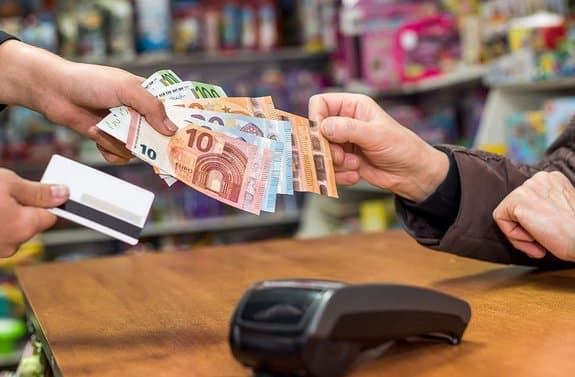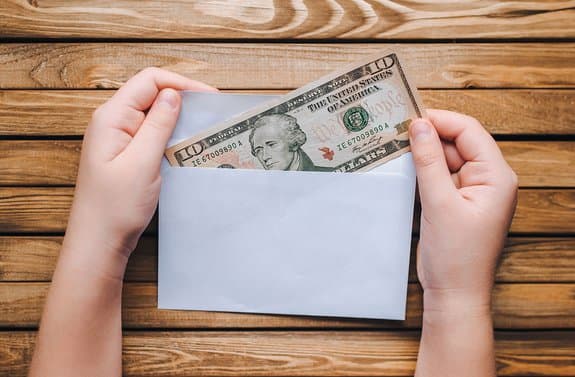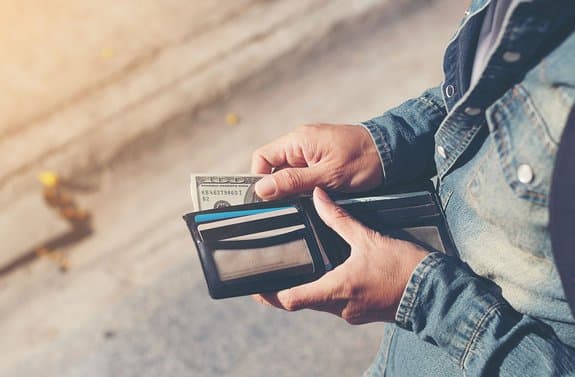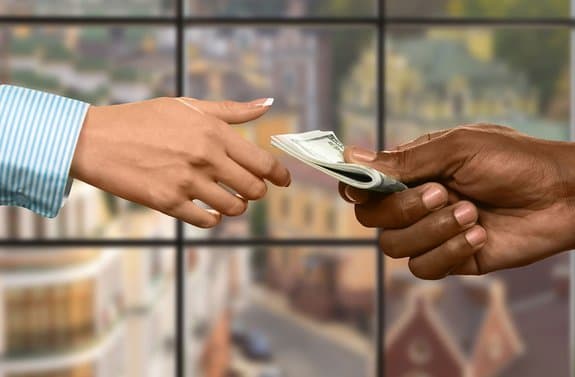
Why medical experts are speaking up for cash in times of COVID-19
According to recent studies, claims that using cash can increase your chance of picking up the virus are fakenews - there is no evidence to date that supports this. Investigations into this virus are still being conducted, but the reports below support the following key messages:
- Cash is safe to use (in times of coronavirus);
- Coronavirus is spreading via cough droplets, not from using publicly handled things (doors, cash, etc);
- The virus does not live long on dry surfaces, and has a particularly short lifetime on cash; and
- Coins are very bad environments for viruses to survive.
The probability of picking up any virus from cash is actually very low compared with other surfaces. Both medical experts and central bank the world over have been emphasizing that "cash is safe to use" (even in times of corona). "To date, there is no evidence of the coronavirus having been spread via euro banknotes – and, if it had, the numbers of infection would be way higher," says Head of the Health Department in Frankfurt, Germany.
"Handling banknotes doesn’t pose a particular risk of contracting coronavirus,"
Dr. René Gottschalk, Germany
On March 17th, 2020, in a press conference with Bundesbank boardmember, Dr René Gottschalk, infectiologist and Head of the Health Department, explained that there is no considerable risk of transmitting coronavirus via banknotes. If there were, the transmission curve would be different.
“In principle, it is entirely irrelevant how long pathogens can survive on surfaces. What is decisive is whether it is an infection channel.”
He saw no such infection channel as existing for banknotes. In addition, banknotes’ physical properties mean that they do not particularly lend themselves to transmitting pathogens. “Coronavirus is mainly spread by infected droplets transmitted by coughing, sneezing or also talking.”
“(Virus) transmission through banknotes has no particular significance,”
The German Robert Koch Institute (RKI), the government’s central scientific institution in the field of biomedicine and one of the most important bodies for the safeguarding of public health in Germany) states that transmission via inanimate surfaces has not yet been documented. The Federal Institute for Risk Assessment (BfR) confirms that no reports of infections from contact with dry surfaces are known for other corona viruses
“The amount of virus that is potentially on an inanimate object is usually very small,”
Prof Jürgen Haas & Dr Christine Tait-Burkard, UK
Prof Jürgen Haas, the head of infection medicine and Dr Christine Tait-Burkard, an expert in infection and immunity at the Roslin Institute (both working at the University of Edinburgh) told The Guardian that although coronavirus can appear on inanimate objects, the odds of contracting it in this way are low. Regarding cash, “unless someone is using a bank note to sneeze in,” says Tait-Burkard, the user is not likely to pick up COVID-19. She adds, “coins are actually very bad environments for viruses to survive.” Ultimately, there typically wouldn’t be much coronavirus on a person’s fingertips, and it would still have to get past your respiratory system to infect you.
World Health Organization
In its latest statements, the WHO confirmed that cash is safe to use, and a plethora of medical experts stated that there is next to zero likelihood to contract the virus via banknotes or coins, be it as a consumer, a supermarket cashier or a professional cash center operator. Stephanie Brickman from the WHO says “the virus will not survive for very long on surfaces, particularly on a dry surface like a banknote.”
List of references
- Phys Study: "Euro coins have antimicrobial activity, in contrast to banknotes" (Apr 17, 2020)
- Bankrate: “Coronavirus and cash: Why consumers should be cautious, but not fearful of handling dollars” (Mar 27, 2020)
- The New England Journal of Medicine: "Evidence of SARS-CoV-2 Infection in Returning Travelers from Wuhan, China" (Mar 26, 2020)
- Financial Times (Opinion): “Banknote virus fears won’t stop Germans hoarding cash” (Mar 25, 2020)
- Central Banking: "Will cash survive Covid-19? (Mar 20, 2020)
- G4S: “ESTA: No Risk of Contamination with COVID-19 on Banknotes” (Mar 19, 2020)
- The New England Journal of Medicine: "Aerosol and Surface Stability of SARS-CoV-2 as Compared with SARS-CoV-1" (Mar 17, 2020)
- Spiegel: "Can you catch cash?" (Mar 17, 2020)
- Nature.com: "The proximal origin of SARS-CoV-2" (Mar 17, 2020)
- Deutsche Bundesbank: "Cash does not pose a particular risk of infection for citizens" (Mar 17, 2020)
- Bloomberg: “New Yorker Anxiety in Hamptons Leads to Hard Cash Demands” (March 15, 2020)
- New York Times: “A Bank in Midtown Is Cleaned Out of $100 Bills” (Mar 14, 2020)
- ATM Industry Association: “New Coronavirus Health Crisis – Separating Fact from Fiction” (Mar 12, 2020)
- MIT Technology Review: “No, coronavirus is not a good argument for quitting cash” (Mar 12, 2020)
- Wall Street Journal: “As Coronavirus Spreads, Should You Have More Cash—or Less?” (Mar 12, 2020)
- Reuters: “Banknotes carry no particular coronavirus risk: German disease expert” (Mar 11, 2020)
- Bloomberg: "Fear of Virus-Tainted Dollars Opens New Front in War on Cash" (Mar 11, 2020)
- Reuters: "Banknotes carry no particular coronavirus risk: German disease expert" (Mar 11, 2020)
- MarketWatch: “World Health Organization: ‘We did NOT say that cash was transmitting coronavirus’” (Mar 9, 2020)
- Euronews: ”Experts play down likelihood of banknotes spreading coronavirus” (Mar 6, 2020)
- The Guardian: "From banknotes to handrails: 10 objects that help spread coronavirus" (Mar 3, 2020)
- Der Tagesspiegel: "Corona virus transferable by cash?" (Feb 27, 2020)






